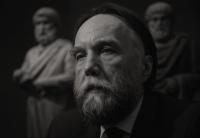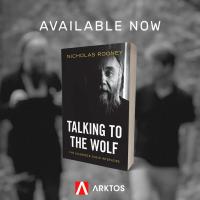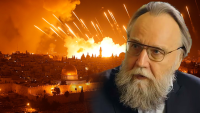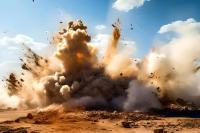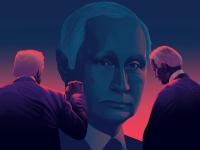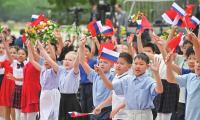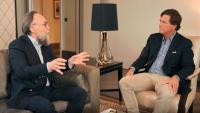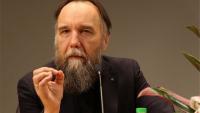Global
Biden’s Covert War: Undermining Syria and Trump
Terrorism's Hidden Architects: Soros, USAID, and Liberal Elites
Right Tech’s Revolution: Beyond Liberalism
Alexander Dugin on Multipolarity
Authentic vs. Inauthentic Existence: The Ultimate Choice
Authentic vs. Inauthentic Existence: The Ultimate Choice
Rejecting Liberal Racism and Reclaiming True Identities
Globalism Unmasked: The Collective Monster Behind the Tentacles
The Western Modernity is Antichrist
The Liberal Moment
Alexander Dugin argues that the collapse of the unipolar world signals the beginning of a grand metamorphosis, as the fading light of Western liberalism gives way to the awakening of ancient traditions, deep civilizational identities, and the promise of a vibrant, multipolar era full of boundless possibilities.
Trump and Ukrainian problem
Alexander Dugin argues that Russia’s uncompromising stance on fully integrating Ukraine into its sphere is a geopolitical imperative, driven by existential necessity rather than expansionist ambitions, and must be clearly communicated to Western leaders like Trump to avoid disastrous misunderstandings.
Book Review: ‘Politica Aeterna’
The Deep State
Alexander Dugin reveals the deep state as a corrupt Western cabal, infiltrating the U.S. and Europe to manipulate elections, crush populist leaders like Donald Trump, and impose its liberal-globalist agenda by deceitfully posing as a protector of democracy while ruthlessly subverting the will of the people.
Dugin’s Directive: “The Conflict in the Middle East Is the Start of a Great War”
Liberation of the Kursk Region or Nuclear Armageddon
A Right-Left Union against Liberals
Why Liberals Hate Their Own
Dromocracy: speed is the key factor in modern warfare
The West and Its Proxies Feel Completely Unpunished
Biden could drag us to WWIII. But will Trump be any different?
We have lost the West, but we have discovered ‘the rest’: Dugin
Russian political philosopher and analyst Aleksandr Dugin (Dugin), whom some Western media call the "Putin's brain," is one of the most controversial scholars in Russia and has now joined China's social media platforms such as Sina Weibo and Bilibili, to seek more and deeper communication with Chinese web users and scholars.
The Tucker Carlson Interview: Terminology Explained
The Tucker Carlson Encounter: Alexander Dugin
Liberalism evil ideology
In an interview with Mehr News Agency, Alexander Dugin, the prominent Russian politician and philosopher and adviser to the Russian President Vladimir Putin discuss the developments of the Gaza war, Russia's conditions for signing the ceasefire agreement with Ukraine, and the solution to the challenges of the South Caucasus.

